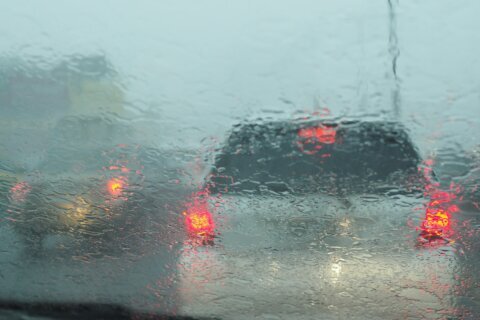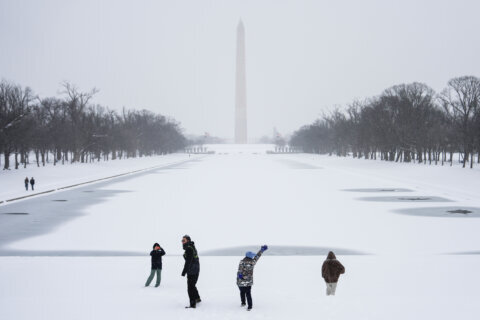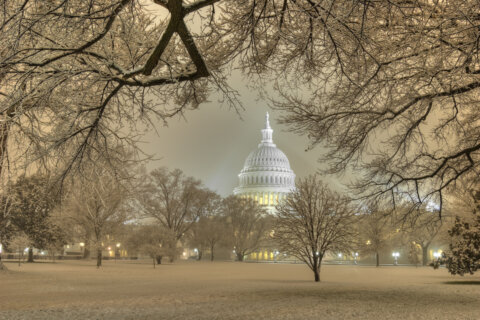WASHINGTON — This may be a busy weekend at local burn units. The problem isn’t fire; it’s the extreme cold that is blanketing the region.
The burn center at the MedStar Washington Hospital Center, for example, is expecting to see new patients who didn’t heed the warnings about the frigid air and ended up with damaged fingers, toes, chins and earlobes.
“Frostbite, even in milder forms, is often treated like a burn injury — there can be blisters and [a] need for surgery and grafting,” says Dr. Jeffrey Shupp, who directs the burn center.
He says this weekend will not bring the first frostbite patients of the year to require emergency hospitalization — those came in just before the January blizzard when temperatures bottomed out. Also in his care: several patients who originally arrived with frostbite damage last winter, when the hospital saw a big upswing in cases.
Shupp says that if you have to go out in the cold this weekend, take precautions: Don’t stay out too long, take breaks inside and be sure to dress in multiple layers.
The first signs of trouble can vary a bit — a tingling sensation or numbness, and change in the color of the affected area. In short, anything out of the ordinary is a sign to come indoors and warm up.
Anything beyond that and you might want to see a doctor.
“If you notice any changes in the skin quality — blistering, dryness, cracking, changes in the skin color, or any open wounds — you should definitely seek the attention of a medical professional,” says Shupp.
Also be on the lookout for signs of hypothermia, which occurs when the body’s temperature drops dangerously low. It occasionally occurs in tandem with frostbite, but the two are not necessarily linked.
The Centers for Disease Control and Prevention says the warning signs of hypothermia include confusion, drowsiness and fumbling hands. If you find someone with these symptoms, get them out of the cold, remove wet clothing and focus on warming the torso first. Warm drinks can also help raise the body temperature, but not alcoholic ones — that can make matters worse.







